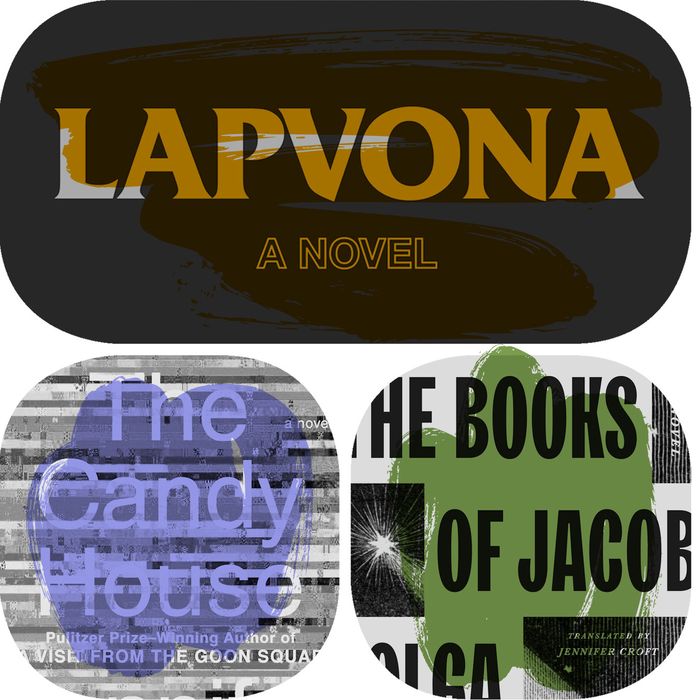
The wheels seem to be falling off 2022 before it can even back out of the driveway, but that’s not to say we can’t mentally fortify ourselves to go the distance this year. A host of new fiction and nonfiction titles — including a new memoir by Margo Jefferson, novels by Ottessa Moshfegh, Jennifer Egan, and Pankaj Mishra, and poetry by Ocean Vuong — can help us separate the mistakes we want to leave in the past from the new realities we want construct for ourselves and each other.
This new edition of McKay’s final and most celebrated collection of poetry features a new introduction from Pulitzer Prize–winning poet Jericho Brown. Harlem Shadows features McKay’s most widely anthologized work, “If I Must Die,” a sonnet of Black militancy that helped usher in the Harlem Renaissance, and Brown reads the volume as an expression of profound love for the vibrancy and diversity to be found within Black community. Even with this reading, rage and desperation bubble under the surface of McKay’s language — best reflected at the close of “The Harlem Dancer,” as the speaker of the poem observes a performer in a jazz club: “I knew her self was not in that strange place.” — Omari Weekes
From the writer who brought us the novel A Little Life, Yanagihara’s latest takes readers through alternate histories in 1893 and 1993 before catapulting them into a late 21st century riven with pandemics and totalitarians. These stories, which unfold over 700 pages, relate to each other atmospherically — not through plot but through shared names and places: a house on Washington Square, monikers that repeat across stories but belong to different people. A thick sense of longing tethers these arcs together in a novel so enigmatic and gripping it left me questioning what paradise can even mean. Given the times, that may be the point. — O.W.
Hurston wore many hats — novelist, dramatist, essayist, cultural anthropologist — and her newest posthumous collection, You Don’t Know Us Negroes, showcases her range and depth. The writings collected here span nearly four decades and touch on a range of issues from the cultural explosion of the Harlem Renaissance to Black girlhood to the political ramifications of integration. Hurston is bold, honest, and provocative, as always, whether she’s pontificating on the ideological mirage of white feminism or insisting that school integration did less than we thought to improve Black students’ educations. The lyrical and uncompromising prose in this collection offers a window into the world of one of our greatest literary minds. — Mary Retta
Fuccboi is the generational tome the Trump era deserves for better and worse. It follows a broke, late-20s loser who shares a name with the author and is trying to make something of himself beyond being a privileged boy-man. While the book is made to resemble diary entries from the protagonist, Sean — about his impersonal interactions through his Postmates gig, hangs with old friends, and “ex-baes” — they more truly recall Twitter with his thoughts dribbling out in broken Ebonics. We ride with Sean on his journey to self-actualization and the grappling of his own bullshit behavior particularly toward women. Fuccboi, like many other books about disaffected men who mean well, is a discomfiting journey: one that takes us through toxic millennial frat-bro psychology, complete with grating, Internet-pilled jive talk. It’s certainly an acquired taste, but there’s something thrilling in its urgent audacity. — Israel Daramola
In dazzling and immersive prose, Onyebuchi intertwines stories set in the 2050s. The characters are Black laborers and white settlers — including a journalist, a space traveler, and a marshal — inhabiting a desolate land ravaged by street violence and environmental upheaval. Blurring their fictional world with the reality of our own dystopian dumpster fire, the badlands in Goliath are populated by people of color forced to share space and cede narratives to neoliberals and conservatives who willingly choose to live in a world of dissonance and fatalism. Onyebuchi precisely captures how the latter two groups rationalize climate change and environmental racism as inevitabilities of capitalism and technological progress, offering up solutions that are really failures of the imagination. The result is bad-faith copies of white flight, gentrification, and colonization — but in outer space. — Safy-Hallan Farah
This memoir follows the Alabama-born scholar and writer Perry as she journeys through the American South on a quest to name its primacy both in the history of the United States and in her own personal origins. Treading lightly through this landscape, Perry is deft and disciplined, her efforts to situate the beauty, oddity, and terror that mark southern life are critical and compelling. As a travel writer, she embraces detours with an eye toward discovery; even a daughter of the South has much to learn about her motherland. “Your responsibility to history hasn’t receded, no matter how far from it you travel,” she writes. Perry asks what it means to be tied to a “land of big dreams and bigger lies” when one is committed to the pursuit of a truth that bursts the nation at its seams. — Jordan Taliha McDonald
On a trip to Japan, a mother and daughter circle each other quietly. There is no tension, no snap, but every exchange — about souvenirs and restaurant menus and their childhood memories — is laden with pressure, a potential missed opportunity for bonding. (The mother, Au writes, had never agreed to come but protested “slightly less” each time they discussed the trip.) Au, who won New Directions’ inaugural Novel Prize, has a knack for building familial dynamics with the barest of words, but her elegant prose never feels chilled. Cold Enough for Snow observes the invisible thread between parent and child as it twists and knots and occasionally goes slack. — Hillary Kelly
What exactly is a Method actor? Is it someone who refuses to come out of character? Who sends dead rats to their castmates? (Quick answer: No.) Despite the confusion over what it really means, the Method is everywhere, permeating every part of American theatrical and cinematic performance. Butler’s new book is conceived as a biography of the underlying idea, the effort to systematize an actor’s quest for emotional “experience.” In doing so, Butler brings together the two great stories of the 20th century — the Russian director Konstantin Stanislavski’s long, fraught quest for truth in art and the Group Theater, which contained squabbling pioneers like Lee Strasberg and Stella Adler — for both a deep investigation into art-making and a gossipy visit with the era’s biggest, messiest figures. Delicious, humane, probing, and beautifully researched, it’s a cultural history that reaches beyond its immediate subject to point at the currents moving under America herself. — Helen Shaw
Translated from Polish by Jennifer Croft
You can practically smell the damp earth, the household fires, the dry paper of Nobel laureate Tokarczuk’s epic set across the villages of 18th-century Poland. Everything about The Books of Jacob, including Tokarczuk’s generous, comfortable style, is vast but meticulously detailed — especially the man at its center, the faith-shifting, clan-leading Jacob Frank, a real figure whom the novelist studied for years and who fancied himself a messiah. Tokarczuk creates a gallery of smoky rooms and rutted roads; dozens and dozens of figures saunter into the story and lurk in doorways. First published in Poland in 2014, this novel has already been compared to Paradise Lost, if that’s any clue to how big its English-language reception will be. — H.K.
In this debut novel, matriarch Eleanor Bennett dies and bequeaths her two adult children with two mementos: an audio recording that tells the tale of her mystified past and a traditional black cake baked according to a family recipe. As the formerly estranged siblings discover, they must mourn their mother while unpacking the murder mystery that chased her from the island of her birth. Much like its titular Caribbean dessert — which is made with macerated fruit “steeped as it was in rum and port” — Wilkerson’s novel is crafted with delicate intention and textured with a blend of perspectives. Black Cake tells the tale of a woman whose rich and harrowing history has been carefully preserved in anticipation of a time when her children will be best equipped to digest it. — J.T.M.
Klosterman zooms in on the interplay between the titular decade’s opposing generations — Generation X and Baby Boomers — and puts the era’s technological transformations in their rightful historical contexts through a series of essays. Take the assumption that the internet was those years’ biggest advancement: Klosterman argues that the truth is more nuanced — the ’90s were really just the last time computers and computerlike devices were seen as an auxiliary rather than a fundamental part of modern life. There’s no need to frame technology as the biggest feat of the decade in order to capture the cultural shift from analog to digital, and Klosterman refrains from using Napster, television, and computers as rhetorical gimmicks. Indeed, his greatest service here is his resistance to assign sharp edges where there is only an underwhelming, fuzzy consensus. — S.H.F.
Aikins is a Canadian journalist who arrived in Afghanistan in 2008 and stayed there for the better part of the next seven years, covering everything from the opium trade to a ruthless warlord to airstrikes. This first book, with a title borrowed from a Dari proverb, is about leaving the country. Aikins — who is of Japanese and European ancestry but was often mistaken for a local — pretended to be an Afghan himself as he accompanied an Afghan friend who was seeking refuge from a long war and a dim future. Together, they made a harrowing journey from Kabul to Istanbul and over the Mediterranean to Europe — joining tens of thousands of others fleeing to build a new life. The Naked Don’t Fear the Water is a beautiful, intimate weaving together of shared histories, exposing the core incongruity of our borders. — Rozina Ali
Heti is an oracular figure in contemporary fiction and Pure Colour, her tenth book, is perhaps her most spiritually engaged work yet. The novel sweeps all the way back to the beginning of things — “After God created the heavens and the earth, he stood back to contemplate creation, like a painter standing back from the canvas” — then zooms forward to the present to plop us in medias res into the life of a woman named Mira, who leaves home to work at a lamp store and go to school, then flounders through myriad messes of adult life. Heti flits through everything we’ve come to expect from her novels: thoughts on creation, death, parenting, friendship, and every little thing in between. In short, the ineffable. — Kevin Lozano
This is the second book in James’s Dark Star trilogy, but it’s not exactly a sequel to 2019’s Black Leopard, Red Wolf. The first novel followed its hero Tracker’s sojourn for a lost boy, but its antagonist, the Moon Witch, Sogolon, proved to be just as deserving of her own account. And here it is: We follow the 177-year-old witch as she reckons with a rivalry of her own against the Aesi, a violent, powerfully telekinetic figure who finds in Sogolon a threat to be extinguished. With the change of perspective that acts as the book’s literary core, we learn how Sogolon’s life has shaped her interpretation of events and how slippery our own perceptions of reality can be. — Jessica Jacolbe
“The truth is that vastly more of us are watching reality TV than not, and those who avert their eyes are still haunted by its apparitions,” writes sociologist Lindemann in True Story, a deep dive into the often disparaged genre of “trash TV.” Offering up critical analysis of the historical, institutional, and cultural forces that brought us shows like The Real World and The Real Housewives of Atlanta, she considers the impact of these highly profitable performances of reality on the way we see both the shows’ characters and ourselves. Balancing the authority of a scholar with the spirit of a fan, she explores representations of race, class, gender, and sexuality within the genre, recognizing reality television for the “funhouse mirror” it is while resisting the pull to pass judgment on those of us who, like herself, understand the appeal of indulging in the distortion. — J.T.M.
The narrator of Checkout 19 never tells us her name, but she does introduce us to the grade-school teacher who encouraged her to write fiction (Mr. Burton), the man whose bitter half-friendship gives way to betrayal (Dale), and every author she has and hasn’t read (E.M. Forster and Ann Quin loom large) as she embarks on a life in letters. I’ll remember this book for its disarmingly figurative language and its subtle observational humor: Wearing a classmate’s underwear in a menstrual emergency, for example, “wasn’t something you just got on with,” the narrator recalls. “It sort of took over, like keeping a secret, and changed the texture of the day entirely.” Here, Bennett exhaustively traces one person’s idiosyncratic, recursive artistic becoming — not just the reading, writing, and cigarette smoking but the relationships and experiences that unlock new ways of seeing. — Marella Gayla
The novelist’s side job — as waiter, assistant, and publishing-house peon — has long provided chewy material, evidence that nonliterary labor is a building block not a detriment. (See: Lily King’s Writers & Lovers, Stephanie Danler’s Sweetbitter, and even Louisa May Alcott’s Little Women.) Cole’s debut novel follows a 20-something ex-forester living with his grandfather and uncle in Kentucky, where he trims trees for a state university in order to take advantage of free creative writing classes. Owen Callahan floats between his blue-collar colleagues and striver classmates, at odds with which piece of himself feels more true — until he meets Alma, a visiting professor and successful novelist. Groundskeeping is a deeply American, of-the-moment novel (think Trump-y relatives and hyperpartisan class woes) written with such exquisite language that it seems destined to break the bounds of time. — H.K.
Translated from Spanish by Sophie Hughes
Two teenage boys waste away in the unsettling world of a luxury housing development: Polo flunks out of school and struggles to keep his miserable job at the apartment complex, while Franco indulges in an open (and unrequited) infatuation with his older neighbor, a married woman with kids. Coming off her last novel, Hurricane Season, Melchor has proven to be one of Mexico’s most tantalizing writers, and Paradais continues her examination into the metaphysical assault embedded in patriarchy and classism. Her appetite for cutting descriptions of sex and actual violence make this short, subversive novel terrifying and hard to put down. — J.J.
At the beginning of this book, Kazin cites an eye-opening Gallup poll from the early weeks of the Biden presidency: “Half of American adults considered themselves to be political independents — the highest percentage ever recorded.” But if those same Americans want to vote, they still almost always have to do it under one of two banners. Kazin, a Georgetown professor and the former co-editor of Dissent, takes us on a 200-year tour through one of those two choices: the Democratic Party, the world’s “oldest mass political organization,” moving from Martin Van Buren to Nancy Pelosi. He writes with the hope that by looking into the deep history of the party — by telling the story of these partisans — we may truly understand the contradictions and virtues of being a Democrat. — K.L.
Even though “public intellectual” has never been a title and concept more in danger — especially as arm’s-length punditry becomes the favored discursive form — Mishra holds the line. Whether he is excoriating the nativism of the British right or the fevered writings of Jordan Peterson, Mishra’s work helps readers get their bearings amid our chaotic present. What is less heralded is his excellent fiction work, and his second novel, Run and Hide, is an exciting follow-up to his 1999 debut, The Romantics. That book is a beautifully written bildungsroman set on the banks of the Ganges, and Run and Hide finds Mishra returning to India’s backwaters to catalogue the travails of Arun, a student, writer, and horrified witness to elites’ excesses during India’s ascent to financial world power. Mishra brings to bear both the high style of his fiction and the clarity of his criticism for an affecting, world-spanning story about capitalism, art, and globalization. — K.L.
Translated from Spanish by Megan McDowell
Zambra has earned a reputation as an autofiction alchemist, an artist who does not simply notate the numbing details of daily life but spins the quotidian into art. In his latest novel, Chilean Poet, he writes in a different, grander register: He tells the story of a young child’s connection with a man his mother once dated, a poet who forms a kind of impromptu family with mother and child before disappearing from their lives. The child soon develops a great love for poetry, and this love prompts him to leave home, too, to discover more about his chosen art form and the man who inspired him. As in Zambra’s slim prior works, we encounter scenarios that are recognizable because we have experienced them before, yet he depicts them with such care and irreverence that they are rendered unfamiliar. — Tope Folarin
Few writers possess a literary voice as inimitable as Bulawayo’s. Her Booker Prize–shortlisted debut, We Need New Names, was a triumph of storytelling and swagger, each section yielding new treasures to careful and casual readers alike. Yet it is the voice of its protagonist — imagistic, unapologetic, hopeful, yearning — that established Bulawayo’s formidable literary presence. Her latest novel, Glory, presents a fresh context: In a nation populated by intelligent animals, Old Horse, a charismatic, ruthless leader, has been deposed. A chorus of animals narrate what happens next as various factions vie for leadership and others attempt to place the country on a more sustainable path. Based loosely on the events following former Zimbabwean president Robert Mugabe’s 2017 fall from power, the various dazzling voices of this novel will draw you deep into its ambitious and mystifying heart. — T.F.
In Nigeria, “vagabonds” are those who are outlawed because of their very existence: the queer, the poor, rogue or unwelcome spirits. In her debut novel, Nigerian writer and visual artist Osunde reclaims the epithet by spinning a tale where those on the margins — sex workers, a lesbian couple, those who converse with dark spirits — can not just find a home and community but triumph. Though the outcasts in Vagabonds! are all quite different, each of them shares the dangerous challenge of trying to live their most true and authentic lives as they fight against the social, religious, and political norms that circumscribe their fates. Osunde’s prose toes the line between myth and unexpected realism, making magic and ghosts feel within the reader’s grasp. — M.R.
Uyghur economist and intellectual Tohti has been imprisoned in Xinjiang since 2014, serving a life sentence for allegedly engaging in “separatist activities.” The truth — as scholar Rian Thum writes in the introduction to this collection of Tohti’s interviews, essays, and personal writing — is Tohti was interned for the “content of his writings”: He warned of the “totalitarian ethnonationalist” stance of the Chinese Communist Party, which has since disappeared many of the country’s Uyghurs to camps it called “concentrated transformation education centers” before renaming them “vocational training centers.” As Tohti wrote before his sentencing, the reason his people’s arduous history must be known and proliferated is because of the hope it and his life’s work evinces: “Even though I have departed,” he writes, “I still live in anticipation of the sun and the future.” — K.L.
Egan’s latest kicks the formal experiments of A Visit From the Goon Squad into hyperdrive. In the alternate reality of The Candy House, a new technology called Own Your Unconscious archives memories in a database. This makes for easy and permanent recall of one’s past while also allowing access to the memories of anyone else who has used the same program. What results is a novel that resists form, incorporating tweets and emails from the future in a series of interconnected stories that show the promise of endless intersubjectivity and the perils of finding missed connections. As we continue to make sense of the fractured attachments that social media makes possible in our own world, Egan imagines a present and a future that push us to interrogate what such a collective mind-meld will mean. — O.W.
An 18-year-old explorer, a detective, and an author walk not into a bar but across such far-flung destinations as a forest, moon colonies, and British Columbia, pondering if they’re trapped in a simulation of reality that’s indistinguishable from the world they know, a simulacrum of its exquisite and familiar beauty. In her sixth novel, Mandel — who also wrote Station Eleven, recently adapted for HBO Max — gives us a story perfectly suited to the multi-temporality of the pandemic, collapsing timelines spanning 1912 to 2401 into a postapocalyptic gumbo of sci-fi and autofiction. She has produced an inventive, haunting, and tender time-travel story that underscores the importance and resilience of art. — S.H.F.
Is anyone in American letters having a better run than Vuong? He’s collected enough accolades over the past few years to stock a trophy case, including a MacArthur “genius” grant. His latest book, a collection of poems titled Time Is a Mother, demonstrates that despite (or maybe because of) his success, Vuong is still pushing himself to discover new ways of enunciating ancient truths. These poems glisten and rattle, and they deftly mine a host of diverse topics — sex, privilege, beauty, art, poverty, death — to offer us a fresh way of evaluating and understanding our world. Vuong expertly unwraps clichés and rewraps them in fresh packaging so we can perceive their meanings anew. On each page he demonstrates that untranslatable is a meaningless word. His poems say, We’re all humans having human experiences. Let’s figure this all out together. — T.F.
The unfinished manuscript of The Pale King (which was shuffled and assembled and finally published in 2011, three years after Wallace’s death) did contain one complete work: this novella. Tucked inside those 500-plus pages was the story of an IRS employee’s dramatic conversion from intellectual drifter to dedicated tax man after he wanders into an advanced seminar taught by a Jesuit — an unmistakably Wallace-esque tale of inanity and profundity. Dedicated DFW fans will remember it from the previous book, but the recently launched imprint McNally Editions is releasing this story on its own as “the best complete example we have of Wallace’s late style.” The entire thousand-page archive of Wallace’s notes for The Pale King is available online at the Harry Ransom Center, but there is something delicious about picking out little snippets of Wallace, like this one, and holding them up to the light. — H.K.
Jefferson has always been an astute chronicler of early days—including her own in her 2015 memoir, Negroland, and the King of Pop’s in 2006’s On Michael Jackson. In her latest memoir, Constructing a Nervous System, she sets her keen eye on the youth and maturation she shared with her elder sister, Denise, the longtime Alvin Ailey director who died of ovarian cancer in 2010, as well as on the comings-along of a host of other figures: Ella Fitzgerald, Ike Turner, the Uncle Tom’s Cabin character Topsy, and more. Jefferson is as precise and sensitive as ever, nonpareil in her scope and ability to synthesize the circus of traditions, arcs, and performances that make up a life, taking the role of stage trouper and spectator in turns. The second sentence of Constructing a Nervous System takes up the intonation of a carnival barker in a dream sequence that rattles Jefferson awake: “THIS IS THE WOMAN WITH ONLY ONE CHILDHOOD.” What an honor to settle in for the show alongside her. — Jasmine Sanders
One of the more hackneyed methods of evaluating fiction holds that you can determine the worth of a text by evaluating the first sentence. This doesn’t really work until it does, as in the case of Things They Lost, the debut novel by Oduor: “December staggered in like a weary mud-encrusted vagabond who had been on her way to someplace else but whose legs had buckled and now she was here.” From the start, Oduor — a winner of the Caine Prize for African Writing, among other honors — broadcasts her tremendous talents. Ayosa, her lonely girl protagonist who travels easily between our world and the spirit realm, pines for a friend. When she finally finds one, their friendship doesn’t develop the way Ayosa anticipates. Come for the beguiling narrative, and stay for the rich, evocative language. — T.F.
For a minute there, Doucet was looking like the Greta Garbo of alt-comics. After turning out reams of hilarious, filthy, intimate, visceral pages in both French and English — through her series Dirty Plotte (Quebecois for “dirty cunt”) and autofictional books like My New York Diary — the Montrealer announced her retirement from comics in the mid-aughts. She was done telling the stories she had before, full of hysterical fuck-up boyfriends, sex dreams, whippets, benders, sight gags, bizarre strangers, and 20-something artists stringing out their welfare checks. She didn’t stop drawing or making collages — how could she? — but comics were out of the question. Until now. This spring, Doucet will finally release Time Zone J, a trippy, semi-tragic comic that tells the story of an amour fou she shared with a troubled Parisian man in the late ’80s. Its full-bleed pages are packed with black-pen renderings of her current middle-aged self, random advertisements, observations, and doodles. Câlice, it’s good to have her back. — Madeline Leung Coleman
This is a kind of sequel to Darryl Pinckney’s 2017 curation, The Collected Essays of Elizabeth Hardwick. Her stylish, gutting one-liners are present — “the almost hallucinated attraction she felt for the expensive” — and they enliven a collection that can otherwise feel too diffuse. (Some of Hardwicks bon mots have aged poorly; in one essay she opines that “a great deal of happiness and vivacity died in social life when anatomy ceased to be a sufficient designation of one’s sex.”) Still, I was struck by the prescience of the collection’s strongest inclusions, particularly a 1996 piece originally published in Art in America that has Hardwick wandering into an exhibition of models based on Leonardo da Vinci’s sketches and emerging with an awareness of art’s peculiar forward vision: “We decide, with an odd unanimity,” she writes, “to call a new thing beautiful.” — Erin Schwartz
When the Chinese Communist Party invites 16-year-old Mei to visit 1960s Beijing, she leaves her impoverished village for the titular, extravagant residence of Mao Zedong. But the precocious teenager ends up flying too close to the sun as she schemes her way into becoming the chairman’s courtesan and confidant on the brink of the Cultural Revolution. Hua’s extensive research into the lives of Mao’s “private secretaries” — his many young lovers — reveals itself in this fascinating novel of historical fiction. The ambitious protagonist, obsessed with the idea of becoming a revolutionary, earns her stripes with a mission from Mao himself, but this coming-of-age story forces us to think of Mei as more than just an effective provocateur. — J.J.
Self-Portrait, Paul’s extraordinary 2019 memoir — about her relationship with fellow painter Lucian Freud, her diminishment in the public eye from artist to mere muse, and her decades-long project painting her sisters and herself — ignited interest in her visual work and her ability to write as originally and gracefully as she paints. This lush book is a series of letters from Paul to her own creative influence, the early-20th-century painter Gwen John, another woman who has often been relegated to footnote status because of her relationship with a “Great Man” (in this case, sculptor Auguste Rodin). It’s a work of biography, analysis, reverence, and supplication, filled with buoyant representations of both Paul’s and John’s work. A charge runs through it, the crackly static electricity of two connected souls touching hands across a century. “Perhaps,” Paul writes, “through you, I can begin to trace the reason for my transformation into painted stone.” — H.K.
Diaz’s previous fiction effort was a Pulitzer finalist, and he splits his gripping follow-up into four different books: a novel (short), an autobiography (unfinished), a memoir (which serves as a sort of fact-check), and a journal (fragmented). At the center of it all is a Wall Street trader and his wife who become incredibly wealthy during the Roaring ’20s and wealthier still during the Great Depression. The novel tells us the neat version of their lives, the one that becomes widely accepted, while the next three books unravel this narrative and uncover the truth hidden within it. At its heart, Trust is about the bigger lies we tell about capitalism and individual ability, about our society and ourselves, and about the price we are willing to pay to maintain such illusions. — R.A.
An exacting writer of the digital age, journalist Vara makes her debut with a trippy novel that marries the family saga with a biotech satire. The Immortal King Rao jumps around in time as the titular King Rao’s daughter, Athena, navigates his very tangible memory on an Indian coconut plantation while serving time in prison after being accused of his murder. The inventor of a personal computer called the Coconut, King Rao’s legacy is a new world order he proposed, a “Shareholder Government” run entirely by a social-profile-driven algorithm. Athena’s fate now lies with these Shareholders, and the novel asks the reader, a Shareholder, to set our protagonist free. Vara has a gift for humanizing the invisible labor that happens behind our screens. Who, if anyone, can really separate themselves from the digital ties that bind us? — J.J.
To those of us who have avidly followed Lahiri’s career since she published her Pulitzer-winning 1999 debut Interpreter of Maladies, her decision to begin writing in Italian was puzzling. Why, we wondered, would she take up the challenge of crafting stories in another language at the height of her career? This book, her first collection of essays, movingly describes her history with translation from her experiences as an immigrant child who struggled to determine how she should address her mother on a Valentine’s Day card — “Ma,” the Bengali term she typically used, or its American English equivalent, “Mom” — to her early literary-translation efforts and her eventual decision to move to Rome and learn Italian. In these essays, she reveals why her late-acquired language is so important to her and how her commitment to learning it doubles as a method of reconnecting herself to the joy of being an artist. — T.F.
Emezi’s latest novel follows Feyi Adekola, a young woman whose lover died five years prior, as she struggles to date again. When she does find a new, passionate love, Feyi is both overjoyed and suspicious: Will a romance this fiery burn up her whole life? Fans of Emezi’s previous work will find comfort in the writer’s striking prose and well-layered characters but will also revel in the author’s bold first attempts at romance. At once a love story and a tale of deep grief, the novel beautifully displays the bravery of choosing love even in times of total despair. — M.R.
As two women making it work in Los Angeles slowly fall in love, their pasts continue to streak into their presents. Sara Foster lands in L.A. as a teenage runaway who eventually establishes herself as a mixologist at the high-end restaurant Yerba Buena, where she’s known for using the eponymous herb as her cocktails’ signature element. While there, she meets Emile Dubois, a recently hired floral designer who has a similarly rocky background. Their courtship may never reach its fullest potential in noted YA author LaCour’s first foray into adult literary fiction. But as the lives of these women chaotically come together and break apart, the sumptuousness of the prose and its reflections of Southern California — its food, its drink, its intimacies — will make you want to take a long, slow drive along an ocean vista. — O.W.
“Does this woman shit novels?” an incredulous friend asked upon the announcement of Moshfegh’s sixth book since 2014. Moshfegh, whose work is famously excrement-friendly, probably would revel in the question. But Lapvona appears to veer dramatically from Moshfegh’s previously loner-heavy oeuvre. This is a novel set in a “vanished medieval fiefdom” with a blind wet nurse who mothers the town’s children and communes with nature, a villainous aristocratic magistrate, and a young shepherd boy drawn into some sort of battle between good and evil. Magic! Peasants! Forest spirits! Here’s hoping Moshfegh, already wonderfully weird, goes full fantasy on us without losing an ounce of her caustic, fuck-it-all shtick. — H.K.
Sumatra is unexpectedly pregnant. But she’s also bipolar, tied to her daily lithium dose to keep hold of who she is. And since babies and mood stabilizers don’t mix, the leave Sumatra takes is from her grip on herself. She quits her medicine and her life in Beijing to return home to America and work through her own childhood, her Nigerian heritage, and the consequences of a life spent in push-pull relationships. Told in letters to her unborn child, flashbacks, and a mix of other forms, The Leaving serves up the motherhood novel a different way — as a pre-baby reckoning with the fact that our children will never see us as who we once were, both a blessing and a curse. — H.K.
This bildungsroman — about a young Black girl whose unruly appetites for food, affection, and freedom confound the small imaginations of those around her — pivots between protagonist Malaya Clondon’s African dance classes, her weekly Weight Watchers meetings at an A.M.E. church, and her majority-white private school. Malaya is constantly fielding outside commentary on her body and behavior, and this feeling of being watched teaches her what her body means to others long before she learns what it could mean to herself. Yet she remains an earnest record-keeper of her unwieldy world, always noting the smells, sounds, shapes, and social dynamics that make up her slice of Upper Manhattan at the tail end of the 20th century. Bountiful and biting, Sullivan’s debut is a crucial meditation on indulgence, identity, and inheritance, a story for those whose desire for self-determination and bodily autonomy cannot be satiated by the rations of a rapacious world. — J.T.M.
I love the fuzzy feelings that reading accrues. The quiet contentment of domestic spaces in Marilynne Robinson’s novels or the majestic awe of invented worlds in Susanna Clarke’s epics. We read to feel, and that’s okay! But Castillo has grander hopes for us, and in this collection of linked essays, she moves to wrest reading away from cotton-candy aspirations of uniting people in empathetic harmony and reposition it as thornier, ultimately more rewarding work. This isn’t a new debate, but it’s one that’s been playing out in hyperdrive over the past decade as criticism, especially online, has crept toward recommendation lists like this one. How to Read Now promises to “interrogate and reflect on the stale questions and uncritical proclamations that so often sub in for vital discussion” and maybe to start some very interesting (and necessary) disagreements. — H.K.
A mix of history lessons and calls to action, this book explores the many ways cops fail to keep people safe and implores us to find alternative means of establishing community safety. Kaba and Ritchie have been involved in abolitionist work for several decades (Kaba focuses on prisons, while Ritchie focuses on police misconduct), and the book gives readers a unique insight into the mindset of veteran organizers who remain diligent and optimistic. Part handbook, part roadmap, No More Police urges readers to imagine not just a world where police are gone but one where police are not needed because we live in communities that are peaceful, well-resourced, and ultimately safe. — M.R.
Hamid’s last, brilliant novel, Exit West, transfigured migration from an arduous physical journey into a matter of stepping through a magical door from one country to another — a sci-fi twist that pushed his characters’ shifting, prismatic identity variations to the forefront. The first line of The Last White Man plucks a similarly Kafkaesque tune: “One morning Anders, a white man, woke up to find he had turned a deep and undeniable brown.” It turns out he is not the only one. (Hamid says the novel’s central idea has been brewing since 9/11, when his own “partial membership” to whiteness was revoked.) And as this inexplicable darkening affects more and more people, fear and worry turn to hoarding and riots while Anders navigates the newfound “hazards of being seen.” — H.K.
Over the past decade or so, Julian Barnes’s novels have changed in both size and texture from formally playful shapeshifters to more emotionally charged chronicles of individual lives. The Sense of an Ending, The Noise of Time, and The Only Story were all poetic missals on love; Elizabeth Finch is about the unrequited variety. It tells the story of the titular professor and a student, Neil, who is already enamored of Elizabeth’s intellectual heft and indebted to her for his philosophical leanings when he is tasked with sorting through her notebooks after her death. But inside every Barnes novel there is a well-placed sprinkling of narrative bait and switch, so expect what sounds like a straightforward premise to cleverly veer off road. — H.K.
Serpell’s second novel opens with a tragedy, and the trauma and grief unfold like a dream. The book follows 12-year-old Cassandra, whose 7-year-old brother goes missing and whose mother refuses to give up hope while his body goes unrecovered; the ensuing turmoil scatters the family and drives those who remain into grief-fueled hysteria. Serpell captures the way sadness both envelopes and burrows inside you: When Cassandra becomes enthralled by an unreliable stranger who seemingly resembles her lost sibling, her world and the book turn on their heads in incredible fashion. The whole thing is a gorgeous, surreal meditation on identity and mourning, one that squeezes the heartstrings and rarely relaxes its grip. — I.D.
Brands love logos because it’s far easier to defend the proper use of a swoosh in court than it is an innovative pleat. The fashion industry has always struggled with legally protecting its designs, which is why the quick-strike, tut-tutting Instagram accounts like Diet Prada name and shame copycatting fashion brands the way they do. Yet rather than holding brands accountable, digital activists frequently get it wrong: They amplify bad data, misinterpret copyright law, and underestimate their own prejudices all to the point that they side with the worst of neocolonial property norms. In Why We Can’t Have Nice Things, Pratt Institute professor Pham challenges our assumptions about online engagement and how it informs our thoughts on everything from ethical consumption to our biases against the Asian fashion copycat bogeyman. Her book adds to a growing body of literature about how the internet is shaping our society and its aesthetics. — Derek Guy
In I Fear My Pain Interests You, Margot, the daughter of musicians, takes leave of New York City to search for a better future in the Pacific Northwest while seeking to escape her past. It’s in her new environs where she encounters a doctor, some film reels, and her family’s secrets. LaCava’s previous novel, The Superrationals, led us into the chic life of a young American girl traversing the metropolitan capitals of the world, and while it’s been difficult to jet-set around the world recently, I can’t wait to be lured into another of LaCava’s stylized settings, this time an exploration of 1960s cinema and bodily absurdities. — J.J.
More From This Series
Every product is independently selected by our editors. Things you buy through our links may earn us a commission.
"wait" - Google News
January 06, 2022 at 08:00PM
https://ift.tt/3JFryWq
49 Books We Can’t Wait to Read in 2022 - Vulture
"wait" - Google News
https://ift.tt/35qAU4J
https://ift.tt/2Ssyayj
Bagikan Berita Ini
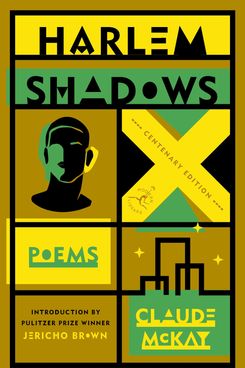
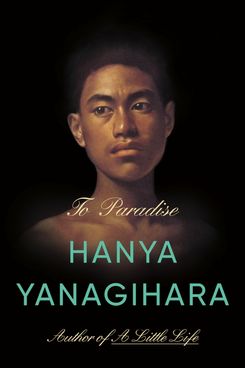
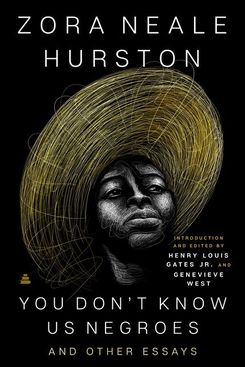
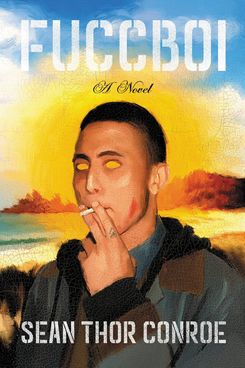
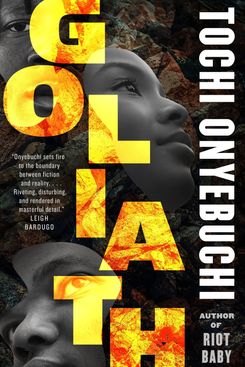
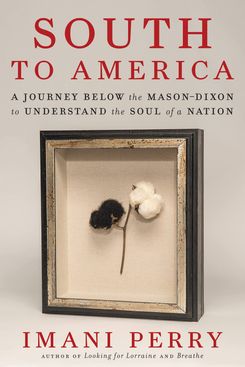
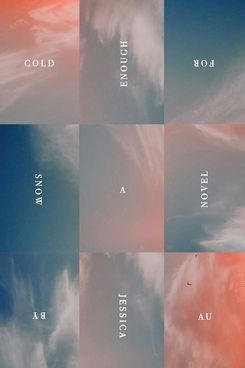
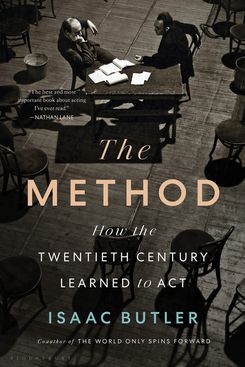
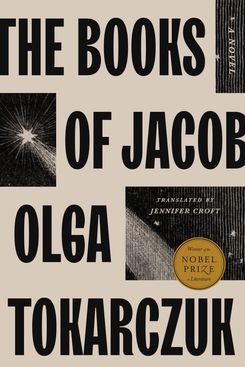
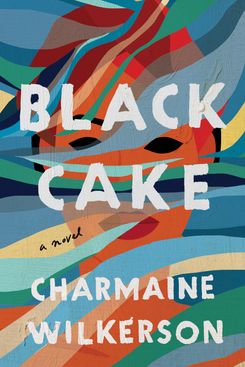

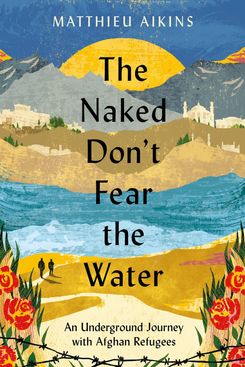
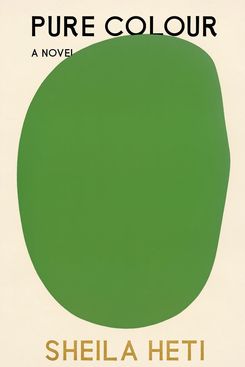
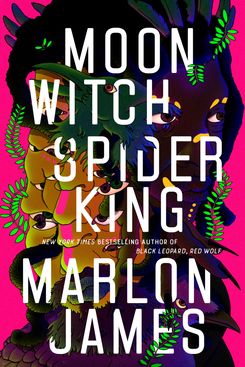
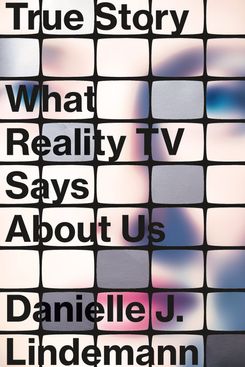
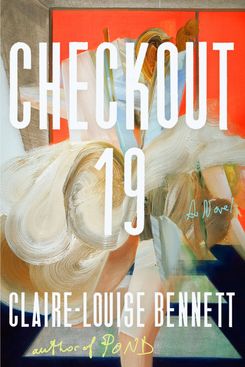
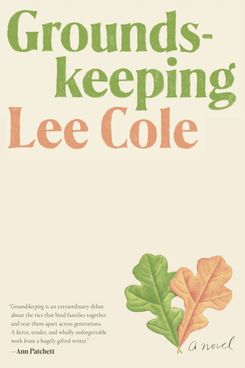
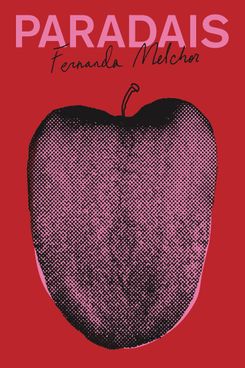
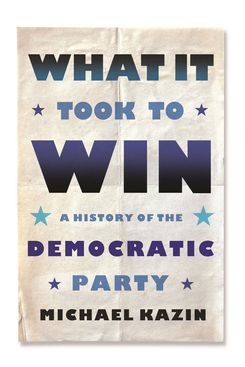
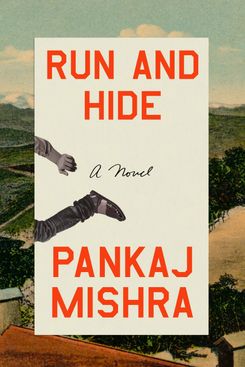
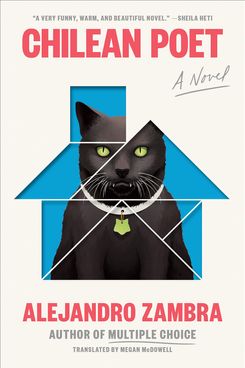
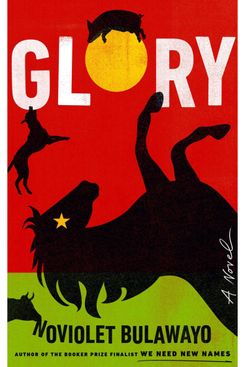
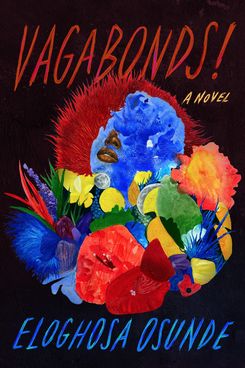
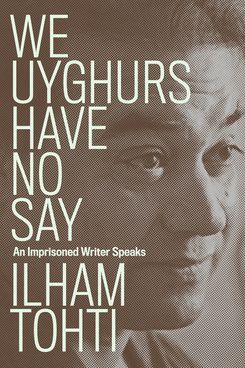
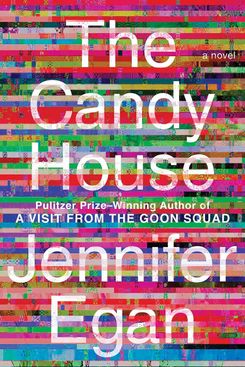
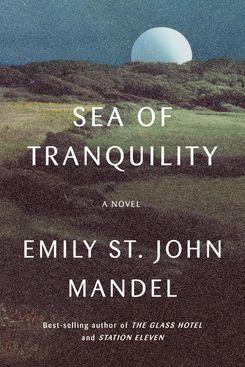
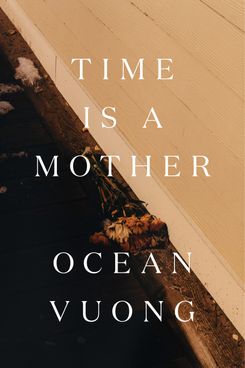
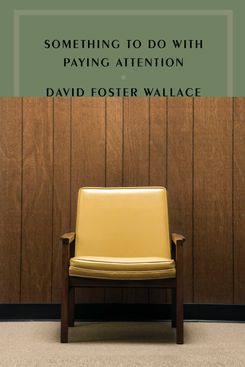
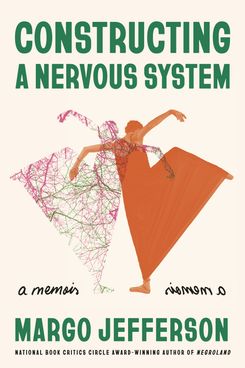
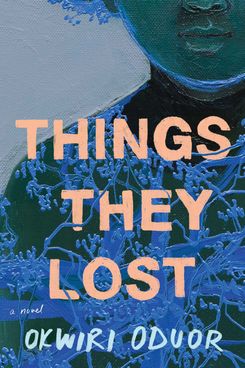
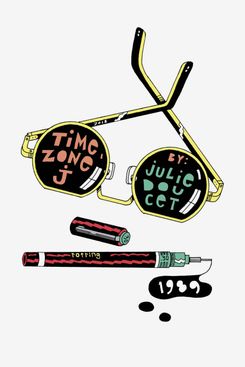
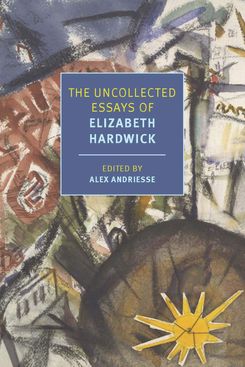
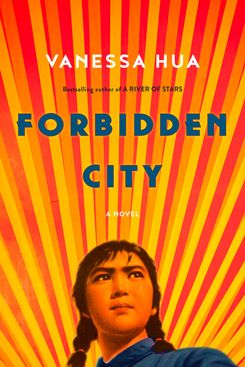
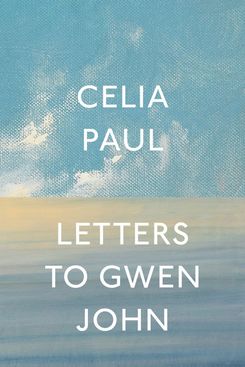
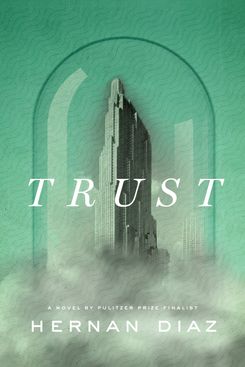
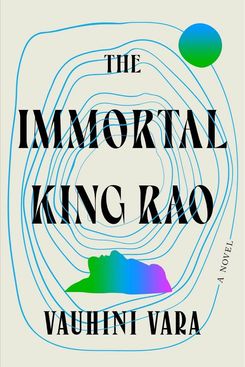
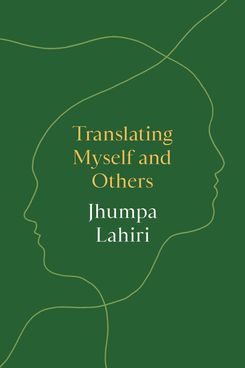
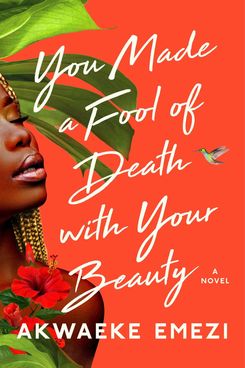
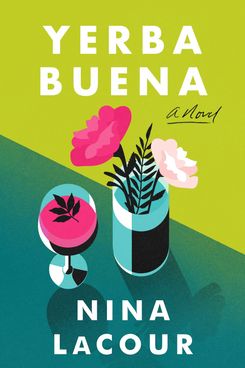
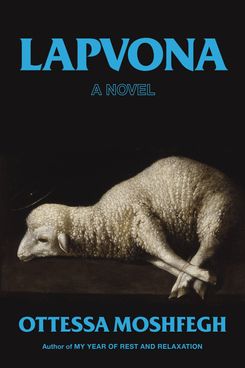

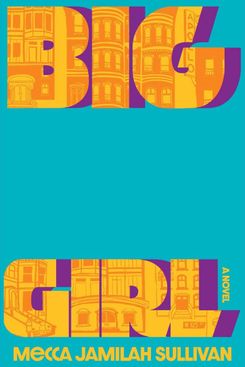
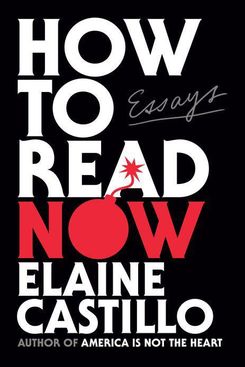
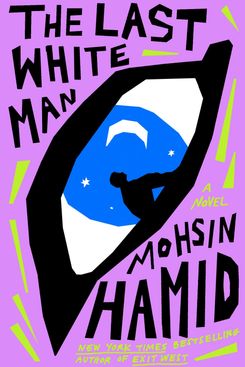

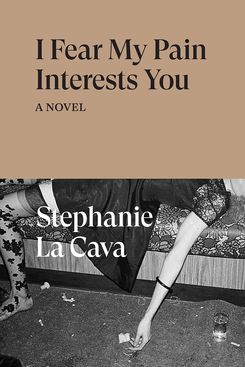














0 Response to "49 Books We Can’t Wait to Read in 2022 - Vulture"
Post a Comment